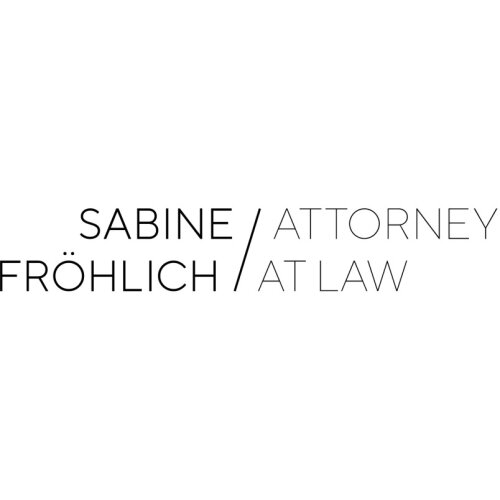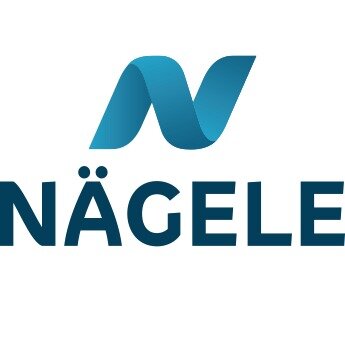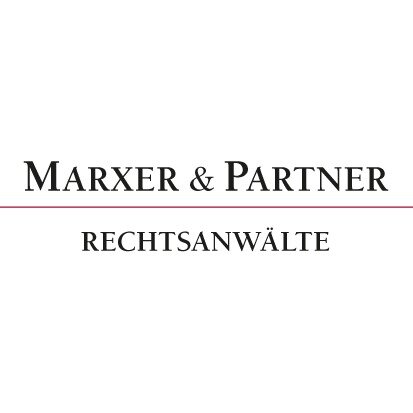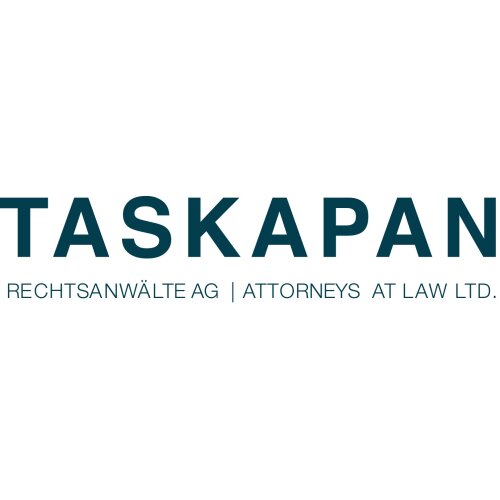Best Renewable & Alternative Energy Lawyers in Vaduz
Share your needs with us, get contacted by law firms.
Free. Takes 2 min.
List of the best lawyers in Vaduz, Liechtenstein
About Renewable & Alternative Energy Law in Vaduz, Liechtenstein
Vaduz, the capital of Liechtenstein, is a progressive city committed to sustainable development and environmental protection. Renewable and alternative energy encompasses sources such as solar, wind, hydropower, geothermal energy, and bioenergy, which play an increasingly important role in Liechtenstein’s national energy strategy. The legal framework surrounding renewable energy aims to promote innovation, ensure safety and reliability, support investment, and align closely with European Union standards, as Liechtenstein is a member of the European Economic Area (EEA). Residents, businesses, and organizations engaged in developing or implementing renewable and alternative energy projects in Vaduz must comply with specific regulations, permitting processes, and incentive schemes.
Why You May Need a Lawyer
Several situations might require legal assistance in the field of renewable and alternative energy in Vaduz. These include:
- Navigating the permitting and licensing processes for installing renewable energy systems - Drafting and negotiating contracts for energy supply, feed-in tariffs, or joint ventures - Understanding subsidies, grants, or tax incentives available for renewable projects - Ensuring compliance with local, national, and EEA regulations - Addressing disputes related to land use, environmental impact, or contractual agreements - Managing intellectual property or technology transfers for innovative energy solutions - Handling regulatory changes affecting energy businesses or community projects
A lawyer with expertise in renewable and alternative energy law can help you avoid costly mistakes, ensure regulatory compliance, protect your investments, and advocate for your interests in legal proceedings.
Local Laws Overview
Liechtenstein’s legal landscape for renewable and alternative energy is shaped by national statutes, EEA agreements, and municipal policies specific to Vaduz. Important aspects include:
- The Energy Act (Energiegesetz), setting out the framework for energy supply, infrastructure, and renewables integration - Emissions reduction targets and environmental protection rules - Requirements for grid connection and feed-in of renewable energy - Building codes related to the installation of photovoltaic panels, wind turbines, or heat pumps - Financial incentives such as subsidies, tax credits, or guaranteed tariffs for renewable energy producers - Procedures for environmental impact assessments, particularly for larger projects - Compliance with EEA regulations, which harmonize many technical and environmental standards with those of the EU
Municipalities, including Vaduz, may have additional requirements or zoning rules impacting renewable energy systems. Consulting specialized legal counsel will help clarify applicable laws for your specific situation.
Frequently Asked Questions
What types of renewable energy projects are most common in Vaduz?
Solar photovoltaic panels, small-scale hydropower, and heat pumps are prevalent in Vaduz due to the area’s size, infrastructure, and environmental priorities. Wind and biomass projects are less common but possible.
Do I need a permit to install solar panels on my home in Vaduz?
In most cases, you will need a municipal permit to install solar panels, especially for larger or non-standard installations. Building and environmental regulations must be observed.
Are there financial incentives for renewable energy in Liechtenstein?
Yes, Liechtenstein offers subsidies and incentives for approved renewable energy projects, often managed through government authorities or energy agencies. Eligibility and application processes vary.
What are the main regulations for businesses producing renewable energy?
Businesses must comply with the Energy Act, grid connection requirements, environmental protection laws, and reporting obligations. Licenses or approvals may be needed depending on the project size.
Does Liechtenstein follow European energy standards?
As part of the EEA, Liechtenstein applies many EU-aligned energy policies and technical requirements in its regulatory framework.
Can I sell excess energy from my renewable system back to the grid?
Feed-in regulations allow certain producers to sell surplus energy to the national grid, often at regulated tariffs. Rules and eligibility depend on system size and compliance with grid standards.
Are there any restrictions on where I can build renewable energy systems in Vaduz?
Zoning and municipal planning laws may restrict installations in protected or residential areas. It’s essential to check with local planning authorities before starting a project.
How does the environmental impact assessment process work for larger projects?
Large-scale renewable energy projects may require a formal environmental impact assessment, which evaluates potential effects on the ecosystem, water, and landscape. Legal guidance is recommended for navigating these requirements.
What legal steps are involved in forming a joint venture for a renewable energy project?
Forming a joint venture involves negotiating contractual terms, establishing a legal entity, acquiring necessary permits and licenses, and complying with financial and environmental regulations. A lawyer can support every phase of this process.
Who enforces renewable energy regulations in Vaduz?
Enforcement is carried out by national agencies, such as the Office of Environment and Energy, as well as municipal authorities in Vaduz, depending on the nature and scale of the project.
Additional Resources
For further information or support in renewable and alternative energy matters in Vaduz, consider these resources:
- Office of Environment and Energy of Liechtenstein (Amt für Umwelt und Energie) - Liechtenstein Chamber of Commerce and Industry (Industrie- und Handelskammer) - Municipality of Vaduz Planning and Building Department - Liechtenstein Institute for Sustainability and Energy - Local renewable energy cooperatives or associations - EEA and EU documentation on renewable energy directives and standards
Next Steps
If you require legal assistance in renewable and alternative energy in Vaduz, follow these steps:
1. Define your project or legal need as clearly as possible. 2. Gather relevant documents, such as permits, contracts, or technical plans. 3. Research and consult with a qualified legal professional specializing in energy law. 4. Discuss your objectives and concerns to receive tailored legal advice. 5. Engage your lawyer to handle negotiations, applications, compliance checks, or litigation as needed. 6. Stay informed about evolving local and EEA regulations to ensure ongoing compliance for your project or business.
Taking these steps will help you navigate the complexities of renewable and alternative energy law in Vaduz efficiently and effectively.
Lawzana helps you find the best lawyers and law firms in Vaduz through a curated and pre-screened list of qualified legal professionals. Our platform offers rankings and detailed profiles of attorneys and law firms, allowing you to compare based on practice areas, including Renewable & Alternative Energy, experience, and client feedback.
Each profile includes a description of the firm's areas of practice, client reviews, team members and partners, year of establishment, spoken languages, office locations, contact information, social media presence, and any published articles or resources. Most firms on our platform speak English and are experienced in both local and international legal matters.
Get a quote from top-rated law firms in Vaduz, Liechtenstein — quickly, securely, and without unnecessary hassle.
Disclaimer:
The information provided on this page is for general informational purposes only and does not constitute legal advice. While we strive to ensure the accuracy and relevance of the content, legal information may change over time, and interpretations of the law can vary. You should always consult with a qualified legal professional for advice specific to your situation.
We disclaim all liability for actions taken or not taken based on the content of this page. If you believe any information is incorrect or outdated, please contact us, and we will review and update it where appropriate.















